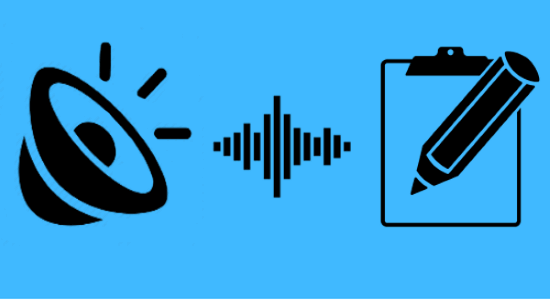How Transcribing Audio to Text Can Benefit You – Tips And Tricks To Get Started
Are you a fast speaker? Or perhaps you find it difficult to articulate your thoughts clearly in written form? Either way, transcribing audio to text can be of great help for you. To many people, transcription appears to be a monotonous and tedious job. However, with the right set of tools and techniques, anyone can become an efficient transcriber. In this blog post, we’ll go through some useful tips on how you can get started with this useful skill and how it can benefit you in the long run.

Why transcribing audio to text is important?
It may seem like a trivial task, but transcribing audio to text can have a wide range of benefits. It can be used to create a transcript of an interview, podcast episode, or any other spoken recording. This can come in handy in a number of situations – from academic research through to journalism. It can also be a great way to practice your writing skills and increase your overall language proficiency. If you’re looking to get started with transcription, there are a few things you should know.
Transcribing benefits
While transcribing audio to text may appear to be a tedious and monotonous task, there are a multitude of benefits to doing so. – It Helps You Improve Your Language Proficiency – When you’re listening to a podcast or an interview, you can focus on the content. – It Builds Your Focus and Attention Span – Transcribing audio to text involves a lot of focus. – It Helps You Improve Your Writing Skills – With each transcription you complete, you’ll improve your writing skills. – It Helps You Plan Your Own Content – You can create transcripts of podcasts or interviews that you like. – You Can Make Money From It – If you’re looking to make some extra cash, you can transcribe audio to text and sell it as a service. – You Can Use It To Practice a New Language – If you’re learning a language, you can transcribe audio to text and use it to practice your new skills.
How to transcribe audio to text?
The best way to get started with transcription is to identify the type of audio you’re going to transcribe. Once you’ve chosen the type of audio content, you can then move on to selecting the transcription software. Here are a few tips that can help you get started with transcription. – Practicing – Before you start making money with transcription, make sure that you’re doing it right. – Find a Quiet Place – If you’re going to transcribe an audio file, it’s best to find a quiet place where you can focus on your work. Use headphones; using headphones while transcribing audio to text is recommended. This will help you avoid getting distracted. You can use a transcription software which will help you type out the audio content in a more efficient manner.
Tools you can use for transcribing
There are two types of tools that you can use to transcribe audio to text. An online transcription service will let you upload an audio file and get it transcribed with usually good accuracy. A Dedicated Transcription App is another option. These apps are specifically designed for transcribing audio files. You can use a transcription app to transcribe audio files and export them to a word document. There are a few apps and services that you can use to transcribe audio to text but there are some out there, just do your research. You can even find tools that work in other languages, this is very useful if Spanish for example isn’t your first language and you live somewhere like Miami for instance. Spanish text to speech service is one feature some software can do like sonix.ai.
Conclusion
Transcribing audio to text is one of the best ways to practice your written language skills. Once you get the hang of it, you’ll see that it’s not as tedious as it may seem. And once you’ve completed your work, you can rest assured that you’ve contributed to something meaningful. Whether you’re looking to make some extra cash or learn a new skill, the next time you come across an audio file, why not give transcription a try?